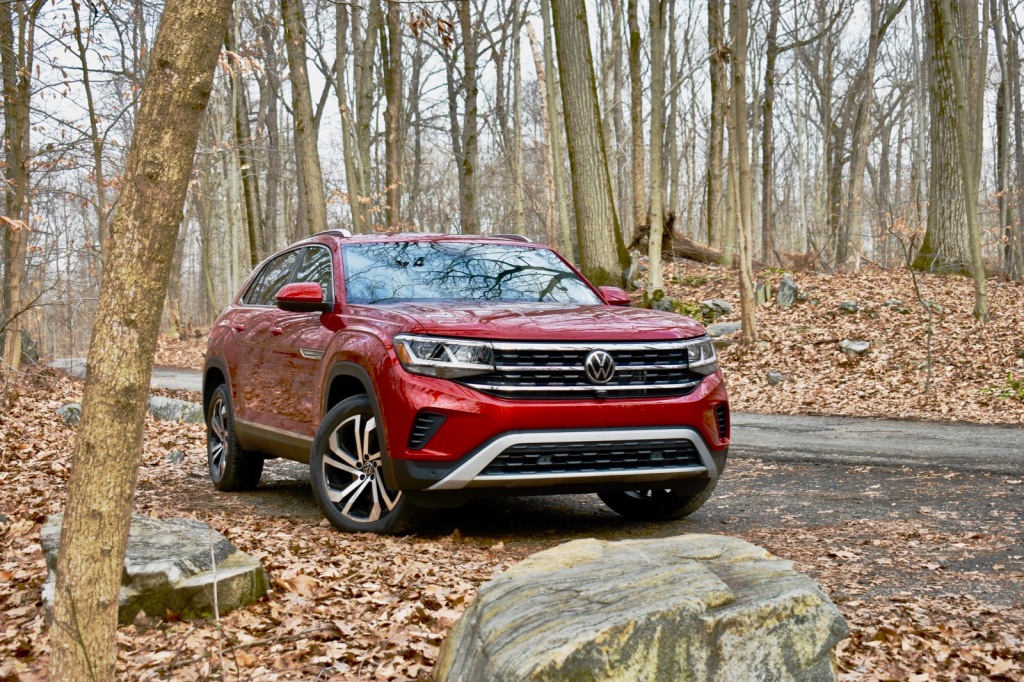
I think I’ve found the ultimate automotive expression of selling out. It’s the 2021 Volkswagen Atlas Cross Sport.
Like a scheming supervillain, Volkswagen is perpetually cycling through plans to conquer the United States market, and the Cross Sport is a subset of one of those plans. For the 2018 model year, VW launched the seven-seat Atlas SUV, a vehicle perfectly suited to American tastes, and built in Chattanooga, Tennessee. With SUV sales booming, VW added a five-seat derivative—the Cross Sport—to the lineup for the 2020 model year.
I recently spent a week test driving a Cross Sport, and was struck by how unlike a VW it was. Take away the badge, and this could have been an SUV from any number of brands. Sure, automakers sometimes populate their lineups with redressed versions of other brands’ cars (the VW Routan was a re-badged Chrysler minivan, for example), but the Cross Sport was engineered entirely in-house. It even shares the MQB platform with more traditional VW models, like the Golf and Jetta.
Partly, it’s the type of vehicle. The Cross Sport is a fairly large SUV (although it’s only a “midsize” by modern standards), and that’s just not something VW has much experience with. Remember, the seven-seat Atlas that begat the five-seat Cross Sport only launched a few years ago. Sure, VW has tried to draw connections between the Cross Sport and old Beetle off-road racers by building a Cross Sport-branded Baja 1000 race truck, but there’s just not much common ground between this SUV and the vehicles VW is known for.
Given enough resources and the right people, any car company can build any kind of car. But that doesn’t mean they’ll get it right on the first try. The Cross Sport isn’t a very good SUV. It rides horribly, the VR6 engine is both gutless and inefficient, the interior looks cheap, and there’s surprisingly little rear passenger space for such a big vehicle. The standard Atlas isn’t very good either but, with its three rows of seats, at least it’s practical.
On a more subjective level, the Cross Sport lacks character. Its exterior styling is generic American toughness, with no references to past VW models. That’s fine if an automaker is looking to chart a new design course, but that’s not what VW did here. The design plays it safe, providing the rugged look VW’s marketing department likely thinks customers want, but in the most inoffensive way possible.
Sometimes it’s good for automakers to break with their own traditions. Ford applied the vaunted Mustang name to an electric SUV, to sensational effect. The Atlas Cross Sport seems like the result of a more cynical impulse. VW knew SUVs were popular, so it created a new one out of an existing model—ensuring greater profit margins in the process. People often lament that interest in cars is waning, but why should anyone care about a car like this? It doesn’t seem like the people who made it do.
